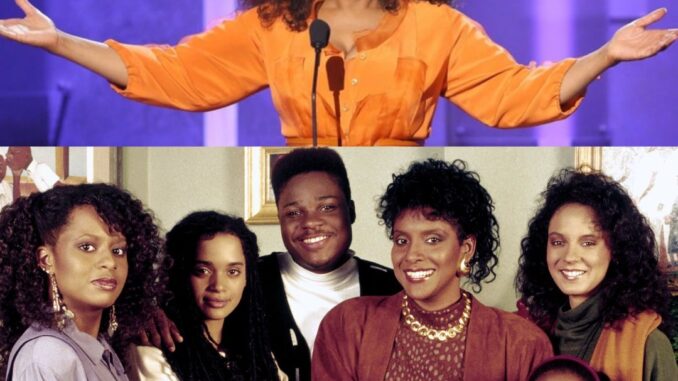
The Cosby Show stands as one of the most influential television series in American history, not only for its popularity but for the revolutionary way it changed the narrative around African-American families on screen.
Premiering in 1984, the show became a cultural phenomenon, bringing African-American representation into mainstream television in a positive, empowering light. Its impact extended beyond entertainment, shaping public perception and sparking conversations about race, class, and family life in America. Oprah Winfrey, media mogul and cultural icon, has often spoken about the show’s importance and how it helped pave the way for African-Americans in media.
The Huxtable family, led by Bill Cosby’s character Dr. Heathcliff Huxtable, a respected physician, and his wife Clair, a successful attorney played by Phylicia Rashad, represented a professional, middle-class household. This depiction was groundbreaking in its portrayal of an African-American family thriving not just in their personal lives, but in their careers and community. It was one of the first times that mainstream television audiences were exposed to an African-American family not defined by struggle but by success, intelligence, and love.
Oprah Winfrey, who herself was breaking new ground in media during the 1980s, has been a vocal supporter of the show’s legacy. In interviews, she’s spoken about the sense of pride and validation African-American viewers felt when watching the Huxtables on screen. “For the first time,” she said, “we saw ourselves as we knew we were capable of being.” Oprah highlighted how the show made African-American excellence visible to millions of viewers, normalizing the idea of African-Americans excelling in professional fields without being reduced to stereotypes.
Beyond its portrayal of the African-American experience, The Cosby Show transcended race and appealed to audiences of all backgrounds. It wasn’t just a show about being African-American; it was a show about family values, education, humor, and love—universal themes that resonated with everyone. Oprah praised the show’s ability to connect with viewers from all walks of life, stating that The Cosby Show was “a mirror of what we all aspired to be—better parents, better partners, better people.”
However, Oprah has also acknowledged the complex legacy of The Cosby Show, especially in light of the controversies surrounding Bill Cosby. She’s expressed how the show’s impact on African-American representation should not be diminished, even as we grapple with the troubling revelations about its star. For many, the Huxtable family remains a symbol of progress, and The Cosby Show still serves as a pivotal moment in television history that opened doors for more diverse and nuanced portrayals of African-Americans on screen.
In retrospect, The Cosby Show did more than entertain—it shifted cultural perspectives. It made space for shows like The Fresh Prince of Bel-Air, Living Single, and later, Oprah’s own influential talk show, where African-Americans could be seen not as outliers but as integral parts of American society. The ripple effect of its success can still be felt today in modern television, where African-American stories are being told with greater depth, diversity, and authenticity.
As Oprah Winfrey reflects on the legacy of The Cosby Show, she emphasizes its importance in normalizing African-American achievement and setting a precedent for future shows. “It was a celebration of who we were and who we could become,” she said. And in that sense, its revolutionizing of African-American representation was not just a moment in television—it was a movement toward a more inclusive and representative media landscape.
